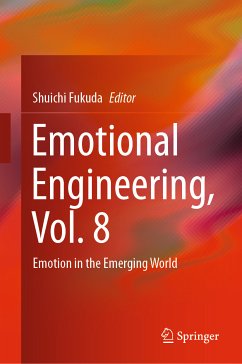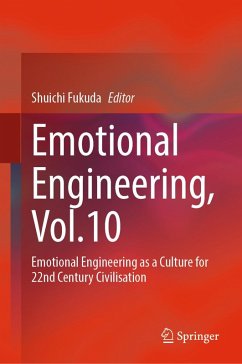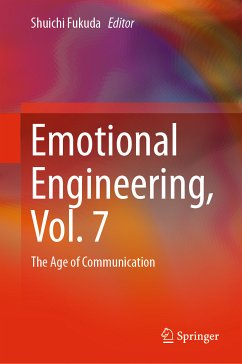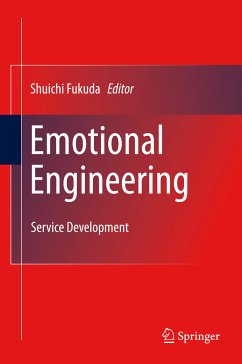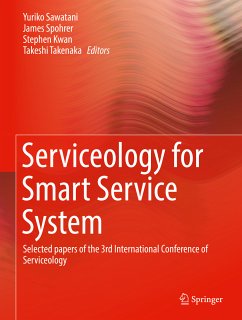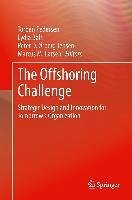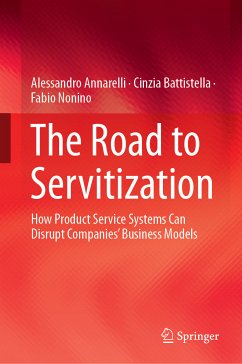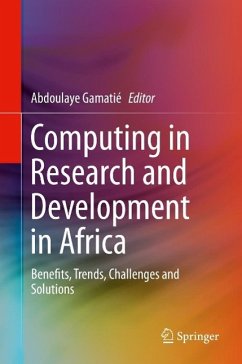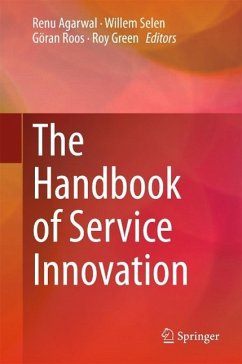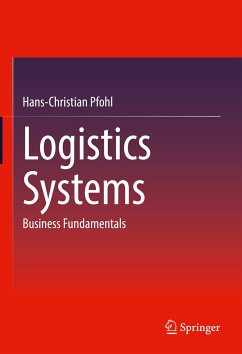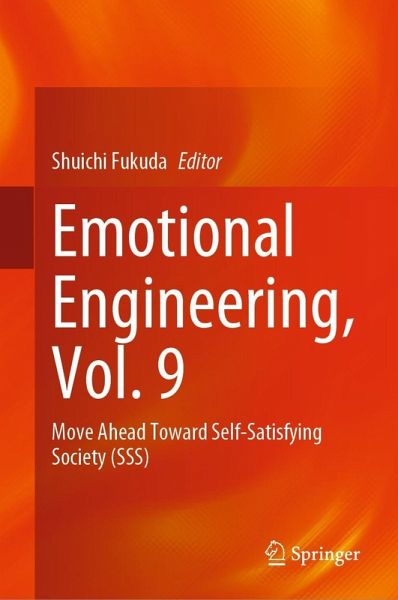
Emotional Engineering, Vol. 9 (eBook, PDF)
Move Ahead Toward Self-Satisfying Society (SSS)
Redaktion: Fukuda, Shuichi
Versandkostenfrei!
Sofort per Download lieferbar
128,95 €
inkl. MwSt.
Weitere Ausgaben:

PAYBACK Punkte
64 °P sammeln!
This is the latest volume in the series of Springer titles on emotional engineering tracking the development of this field.Engineering has been based on the Euclidean space approach and it was numerical data-centric. In short, our engineering up to now has been control-based, i.e., on tactics and problem solving. When we realize AI consumes 10,000 times more energy than human brain, we understand how it is better to use 10,000 people's minds. But current society is industrial society. The industrial revolution introduced division of labour and we started to work for others. But the tremendous ...
This is the latest volume in the series of Springer titles on emotional engineering tracking the development of this field.
Engineering has been based on the Euclidean space approach and it was numerical data-centric. In short, our engineering up to now has been control-based, i.e., on tactics and problem solving. When we realize AI consumes 10,000 times more energy than human brain, we understand how it is better to use 10,000 people's minds. But current society is industrial society. The industrial revolution introduced division of labour and we started to work for others. But the tremendous consumption of energy indicates that we need to move toward another society. If we can make the next society a self-Satisfying society (SSS) and create a new sustainable society with greater mental wellbeing then many emerging problems will be solved and we can enjoy our lives better. Emotional engineering engages with this challenge.
Engineering has been based on the Euclidean space approach and it was numerical data-centric. In short, our engineering up to now has been control-based, i.e., on tactics and problem solving. When we realize AI consumes 10,000 times more energy than human brain, we understand how it is better to use 10,000 people's minds. But current society is industrial society. The industrial revolution introduced division of labour and we started to work for others. But the tremendous consumption of energy indicates that we need to move toward another society. If we can make the next society a self-Satisfying society (SSS) and create a new sustainable society with greater mental wellbeing then many emerging problems will be solved and we can enjoy our lives better. Emotional engineering engages with this challenge.
Dieser Download kann aus rechtlichen Gründen nur mit Rechnungsadresse in A, B, BG, CY, CZ, D, DK, EW, E, FIN, F, GR, HR, H, IRL, I, LT, L, LR, M, NL, PL, P, R, S, SLO, SK ausgeliefert werden.



